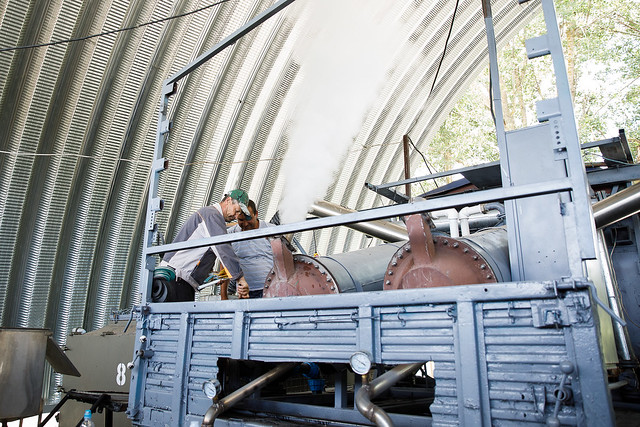Lavender growers have got up to 50% smaller harvest than last year, still they expect to cover their expenses and even get profit
Most lavender growers have completed the harvest. There are a few fields left in the northern part of Moldova, as the rains delayed the process.
Farmers with young plantations have collected up to 30% fewer flowers than last year. Those with plants over 10 years old have got almost half of the previous year’s harvest.
"Usually, when there is a drought, fewer flowers are harvested, but the quality of lavender oil increases," says the president of the Lavender Growers’ Association, Alexandru Bădărău.
This would be a compensation for the smaller amount. The oil was extracted immediately following harvesting, and the quality tests shall be performed.
Some growers have begun to dry bouquet plants to diversify their products.
However, it is expected that lavender growers will not register loses, that is, they will cover their expenses, and maybe even make a profit. It is too early to make estimations, as it depends on what price will be set for lavender oil on the international market.
"We do not know at this stage if we will be able to sell lavender oil more expensively, considering the reduction of production volumes in our country. For example, Bulgaria, with which we compete, had a good year, and could deliver large quantities of oil. Therefore, the prices may remain unchanged," says Vitalie Bordeniuc, director at Resendjer, a company that has been growing lavender for almost two decades on an area of 200 hectares.
Most of the production is exported to Germany. As its transportation was not significantly affected by the restrictions adopted in the context of the COVID-19 crisis, farmers do not worry about the market. Still, pandemic has brought some problems – because lavender oil is not a first necessity product, demand for it has decreased this year.
"Other crops have been affected by the drought, low temperatures in May and hail to such an extent that they have caused losses to farmers. Lavender, however, even if it has suffered because of the weather, will still benefit growers. We do not have a full picture now, as we do not have all figures on the table," says Alexandru Bădărău, president of the Lavender Growers’ Association from Moldova.
This year they did not meet any challenges related to the workforce. On one hand, the drought also left the orchards without fruits, respectively there was less work around them. On the other hand, young people, who used to work in the summer in cities, in recreation area, have now returned to the villages on holiday because the premises did not operate as before the pandemic.
It was an advantage for those with small areas, who resorted to manual harvesting. Lavender can be picked either by hand, or with a combine harvester.
Currently, Moldovan lavender growers conclude spot contracts - after producing certain quantities, they look for their buyer and sell at market prices.
The Association of Lavender Producers is advancing the implementation in Moldova of the international quality standards in the field, which will serve as an insurance for growers. This means that every year we will deliver prescribed quantities at prescribed prices. Even if the prices will not be always advantageous, stability will be ensured.
The association is advised by the "AroMed Business is reborn on the banks of the Nistru river" project, which aims to support the development of the aromatic and medicinal plants industry in the Republic of Moldova, by obtaining membership in the European Federation of Essential Oils. There are also plans to help the Association to participate in an international exhibition and conclude at least one contract for the export of essential oils from Moldova. This project is implemented with the support of the European Union, through the EU "Confidence Building Measures" Programme, implemented by UNDP.


 Locations
Locations








